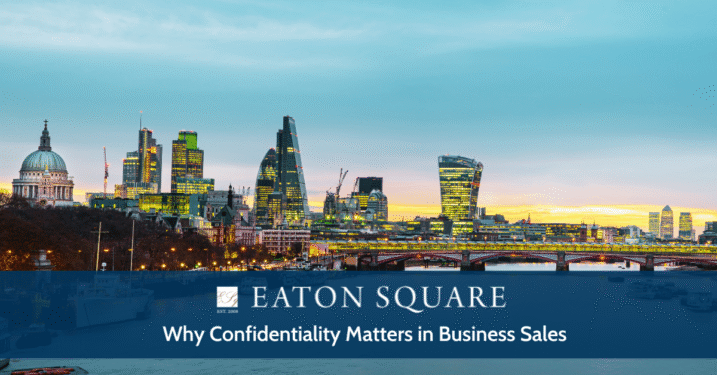
When selling a business, few things are as critical—and often overlooked—as confidentiality. While most owners understand the need for a confidentiality agreement, many underestimate how easily sensitive information can be exposed and how quickly a potential sale can unravel as a result.
Confidentiality isn’t just a matter of good paperwork—it’s a disciplined approach that should guide every stage of the process, from initial outreach to due diligence.
A Costly Misstep: When Confidentiality Fails
Consider the case of a large conglomerate selling two subsidiaries. The sale of the first business went smoothly, led by an M&A advisor who managed the process professionally. However, the second sale took a different turn.
A prospective buyer—a direct competitor—approached the seller’s CEO, asking to bypass the broker and negotiate directly. The buyer refused to sign a confidentiality agreement, claiming it was too restrictive. Against their advisor’s counsel, the CEO shared sensitive financial and operational information in the hopes of expediting the deal.
The result? The buyer walked away and immediately began poaching employees, undermining customer relationships, and spreading damaging rumours about the business’s viability. Ultimately, the subsidiary’s performance suffered—along with its value.
This real-world scenario is a powerful reminder: confidentiality isn’t just a legal formality. It’s a business-critical safeguard.
Why Protecting Confidentiality is Essential
Maintaining confidentiality protects more than just proprietary data. It ensures:
- Stronger buyer interest. Top-tier buyers are more likely to engage when the process is well-managed and professional.
- Preservation of value. News of a sale—or failed sale—can destabilise relationships with employees, customers, and lenders.
- Regulatory compliance. Disclosures must be carefully managed in line with privacy, labour, and competition laws.
- Business continuity. Disruption or mistrust within the team can derail day-to-day operations and distract leadership.
Put simply, poor confidentiality can erode value long before a deal is closed.
The Role of a Professional Advisor
This is where experienced M&A advisors bring unique value. An effective advisor:
- Ensures NDAs are signed and enforceable.
- Controls the timing and flow of information to buyers.
- Maintains discretion throughout the process.
- Shields the management team from unnecessary distractions.
By creating a structured, controlled environment, advisors enable sellers to share the right information with the right buyers—at the right time.
Professionalism Protects Value
Selling a business is not just a transaction—it’s a strategic process. And confidentiality is a core part of that strategy. A disciplined, well-managed sale process protects sensitive information, preserves value, and helps secure the best possible outcome for the seller.
